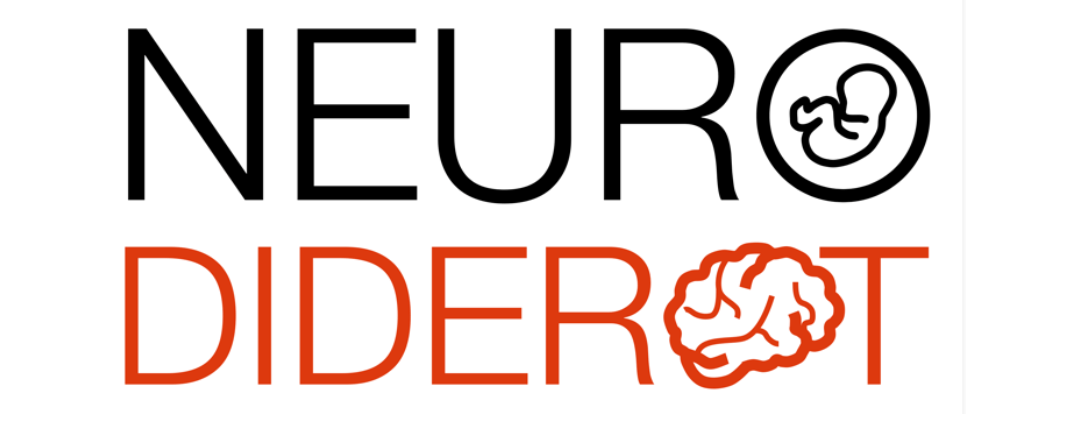Neuroinflammation and neurotransmission
Group Pascal Dournaud
Prenatal alcohol (Ethanol-EtOH) exposure (PAE) can modify brain developmental trajectories and lead to a variety of lifelong physical and cognitive disabilities. These maternal alcohol-induced symptoms are known as Fetal Alcohol Spectrum Disorder (FASD). Widely under-diagnosed, FASD is the leading cause of non-genetic mental retardation in the Western world. Importantly, male fetuses are more vulnerable to EtOH exposure than exposed female fetuses, making gender a central factor to study in the PAE.
Although considerable efforts have been made to better understand the effects of alcohol exposure on brain development, important questions remain unanswered, particularly concerning inflammation. ImmuFASD represents a consortium of researchers with complementary expertise. Using the skills of Partner 1 (BBB integrity in embryos, microglial and astrocyte physiology and pathology), Partner 2 (Brain-immune system interactions, immuno-metabolism phenotyping, inflammation, immune deregulation and immune-metabolic reprogramming) and Partner 3 (animal models of FASDs, neurovascular dysfunction in FASDs, human brain bank of EtOH-exposed fetuses) this project aims to decipher, in both male and female mouse embryos, how PAE can: 1-impact on BBB integrity and functionality (WP1), 2-induce long-standing changes in microglial and astrocyte physiology (WP2) and 3- induce acute and permanent immune deregulation with impact on brain development (WP3). In addition, it will be a groundbreaking project designed to fully analyze gender differences in response to PAE. Decoding these aspects is essential to link neural circuit development, structure and function, and to make a significant step forward in the comprehension of FASDs aetiology.
Staff involved:
Zsolt Csaba (Research Engineer-Equipe 1), Valérie Faivre (Engineer-Equipe 1), Juliette Van Steenwinckel (Research Engineer-Equipe 1), Pierre Gressens (Research Director-Equipe 1), Mireille Laforge (Researcher-Equipe 2), Lea Hermann (Master 2 student-Equipe 1), Pascal Dournaud (Research Director-Equipe 1). Collaboration with Bruno Gonzalez (Inserm UMR1245-Université de Rouen)
Recent publications:
Neonatal inflammation impairs developmentally-associated microglia and promotes a highly reactive microglial subset. Dufour A, Heydari Olya A, Foulon S, Réda C, Mokhtari A, Faivre V, Hua J, Bokobza C, Griffiths AD, Nghe P, Gressens P, Delahaye-Duriez A, Van Steenwinckel J. Brain Behav Immun. 2025 Jan;123:466-482. DOI: 10.1016/j.bbi.2024.09.019.
Deleterious effect of sustained neuroinflammation in pediatric traumatic brain injury. Jacquens A, Csaba Z, Soleimanzad H, Bokobza C, Delmotte PR, Userovici C, Boussemart P, Chhor V, Bouvier D, van de Looij Y, Faivre V, Diao S, Lemoine S, Blugeon C, Schwendimann L, Young-Ten P, Naffaa V, Laprevote O, Tanter M, Dournaud P, Van Steenwinckel J, Degos V, Gressens P. Brain Behav Immun. 2024 Aug;120:99-116. DOI: 10.1016/j.bbi.2024.04.029.
Targeting the brain 5-HT7 receptor to prevent hypomyelination in a rodent model of perinatal white matter injuries. Bokobza C, Jacquens A, Guenoun D, Bianco B, Galland A, Pispisa M, Cruz A, Zinni M, Faivre V, Roumier A, Lebon S, Vitalis T, Csaba Z, Le Charpentier T, Schwendimann L, Young-Ten P, Degos V, Monteiro P, Dournaud P, Gressens P, Van Steenwinckel J. J Neural Transm (Vienna). 2023 Mar;130(3):281-297. DOI: 10.1007/s00702-022-02556-8.
miR-146b Protects the Perinatal Brain against Microglia-Induced Hypomyelination.Bokobza C, Joshi P, Schang AL, Csaba Z, Faivre V, Montané A, Galland A, Benmamar-Badel A, Bosher E, Lebon S, Schwendimann L, Mani S, Dournaud P, Besson V, Fleiss B, Gressens P, Van Steenwinckel J. Ann Neurol. 2022 Jan;91(1):48-65. DOI: 10.1002/ana.26263.
A simple novel approach for detecting blood-brain barrier permeability using GPCR internalization. Csaba Z, Vitalis T, Charriaut-Marlangue C, Margaill I, Coqueran B, Leger PL, Parente I, Jacquens A, Titomanlio L, Constans C, Demene C, Santin MD, Lehericy S, Perrière N, Glacial F, Auvin S, Tanter M, Ghersi-Egea JF, Adle-Biassette H, Aubry JF, Gressens P, Dournaud P. Neuropathol Appl Neurobiol. 2021 Feb;47(2):297-315. DOI: 10.1111/nan.12665.
Contacts
Pascal Dournaud
NeuroDiderot, Inserm U1141
Hôpital Robert Debré
48 boulevard Sérurier
75019 Paris
pascal.dournaud@inserm.fr
À lire aussi

Conference Thursday, January 22, 2026, 11:00 AM by Xavier Leinekugel from the Institut de Neurobiologie de la Méditerranée (INMED), Marseille : Potential consequences of altered maturation of hippocampal perisomatic inhibition on cognitive development and neurodevelopmental disorders
20260122 Xavier LEINEKUGEL english

Conference Thursday, February 12 2026, 2PM (zoom) by Pr Raul Chavez-Valdez from Baltimore : Synaptic Plasticity following Neonatal Hypoxic-Ischemic Brain Injury
20260212 séminaire Raul Chavez english

Conference February 19, 2026, 11:00 AM by Dr Clément Apelian from PRHySME : Hypnosis beyond fantasy – basic science challenges and clinical relevance
20260219 séminaire Clément Alepian english
Conference April 16th, 2026, 11:00 AM by Alexandra Benchoua from I-Stem : Human pluripotent stem cell models for high-throughput screening of therapeutic molecules and precision medicine in neurodevelopmental disorders.
20260416 séminaire A-Benchoua english
